Alex Jones said refugees ravaged Idaho town with disease and crime. Twin Falls says folks get along fine
- Share via
Conspiracy theorist Alex Jones said refugees ravaged an Idaho town with disease and crime. The town says folks get along just fine
The refugees have been coming here for decades, settling in this Idaho town on the edge of a deep canyon carved out by the Snake River.
There were Cambodians. Then Bosnians arrived after the collapse of Yugoslavia. Rwandans fleeing genocide found haven here. Recently, it’s been Syrians, Iraqis and Afghans.
They’ve opened stores and restaurants in Twin Falls, a community of 47,000 that loves its high school rodeos and takes great pride in its biggest natural attraction: the Shoshone Falls, dubbed “the Niagara of the West.” Dairy farms, cornstalks and potato fields sprawl out on both sides of Interstate 84. The open sky is uninterrupted for miles.
Eshef Jasarevic, who had fled Bosnia, liked it all right away. He opened Emma’s Cafe three years ago (“Sixty-four Yelp reviews — all five stars,” he boasts with a broad smile). Across town, Sokry Heng’s family started an Asian market 15 years ago. Business was good enough that they expanded to a larger location three years ago, also opening an Indian-Asian restaurant and a U-Haul franchise. She employs eight people now.
Twin Falls Mayor Shawn Barigar sees them as a continuation of the story of his city. It reminds him of his heritage — Dutch and Bohemian ancestors who came to Idaho five generations ago to start a new life.
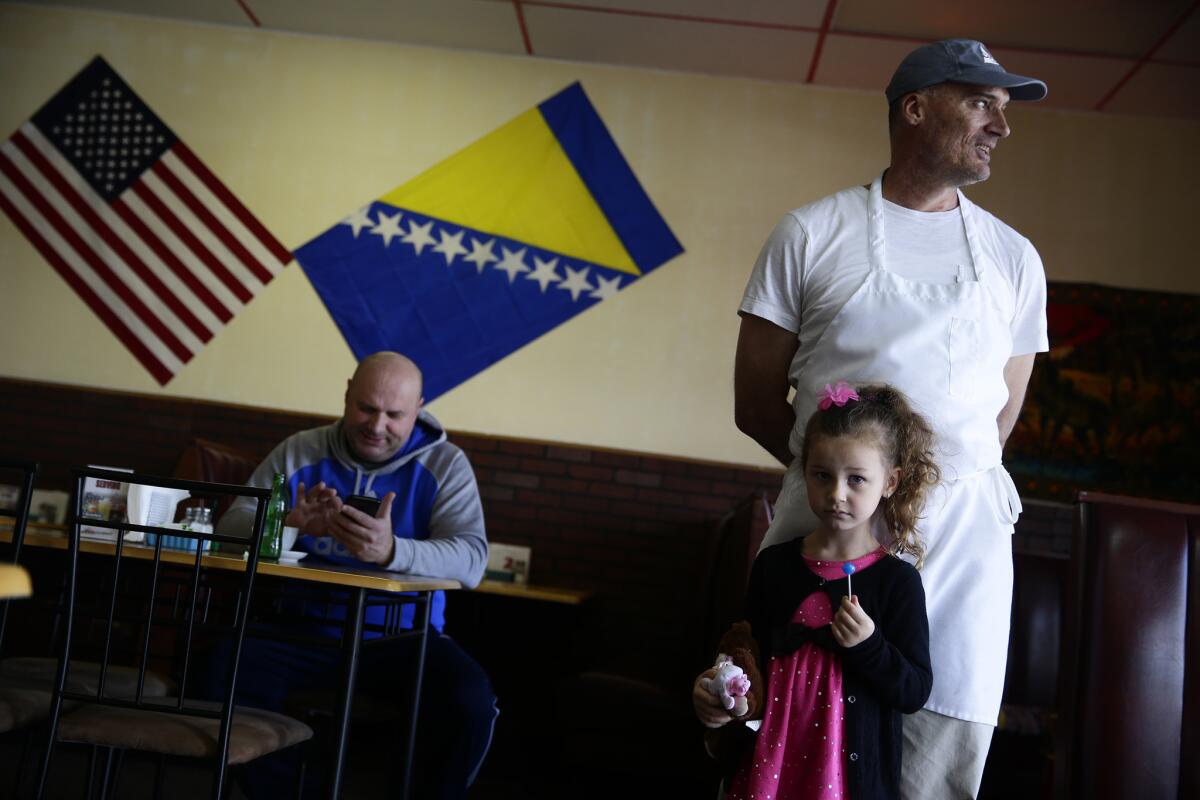
But now he sees the city’s image under siege — caught in the crossfire between far-right conspiracy theorist Alex Jones and one of the area’s largest economic drivers, the yogurt company Chobani, and the debate over refugees spurred by President Trump’s proposed travel bans.
Barigar believes Jones went too far by saying the city is being infiltrated by Muslim terrorists spreading disease and committing violent crimes.
“When people who have never been here — who don’t understand the fabric of the community — try to tell a story about it without facts, that’s detrimental to all of us,” Barigar said.
The damage began last summer when three children assaulted a 5-year-old girl. Word spread fast that the attackers — 14, 10 and 7 — were from refugee families and that the victim was white.
Twin Falls County Prosecutor Grant Loebs says the bad information soon fanned out across a small but vocal segment of the anti-refugee community. There was a knife (false). They were Syrians (false). They raped the child (false). They urinated in her mouth (false).
Anti-refugee activists seized on it, however. The online magazine Slate reported that during City Council meetings, “speaker after speaker stood up to denounce Islam and warn that terror had come to Twin Falls.”
Ultimately, the kids pleaded guilty to felony lewd conduct and misdemeanor battery.
“There are many possible reasons why this has been so falsely reported and with such frequency,” Loebs said. “There are people who don’t know what they’re doing and have no idea what the facts are and just throw stuff out there. And there are people who see this and it fits into their preconceived notions of what they want the story to look like, and they put it out that way.”
Twin Falls County Sheriff Tom Carter agrees. “We have very little issues with criminal activities that have to do with refugees,” he said.
Jones, along with Breitbart News, took direct aim at Chobani and its chief executive, Hamdi Ulukaya, for hiring refugees who they claimed had nefarious intentions while spreading disease and causing crime. Twin Falls took on the collateral damage.
“Idaho Yogurt Maker Caught Importing Migrant Rapists,” Jones read from a Breitbart story.
Shuffling papers on his desk during his broadcast, Jones rattled off more instances of crime and disease descending on Twin Falls.
“TB spiked 500% in Twin Falls during 2012 as Chobani opened the plant,” Jones read during a segment on his Infowars program. “The blessings just continue. Seven refugees with active TB sent to Idaho when they know they got it.”
Chobani sued for defamation on April 24 and reserved the right to seek punitive damages. Jones quickly responded on his show, predicting an Idaho jury would not side with the yogurt company.
“You wait until the Idaho jury brother sits there and sees all this and knows all this. Won’t matter half of them work at your damn plant. They hate your guts too,” Jones said. “They hate your thuggery. They hate your bullying. They hate your Islamification. They hate your mutilation. They hate everything Islam does.”
But this is all news — not the real kind — to Twin Falls as well.
Last year, a group of anti-refugee activists gathered signatures for a ballot proposal to close the College of Southern Idaho Refugee Center here. It got 855 signatures — well short of the 3,842 needed to qualify.
The Idaho Department of Health and Welfare debunked the
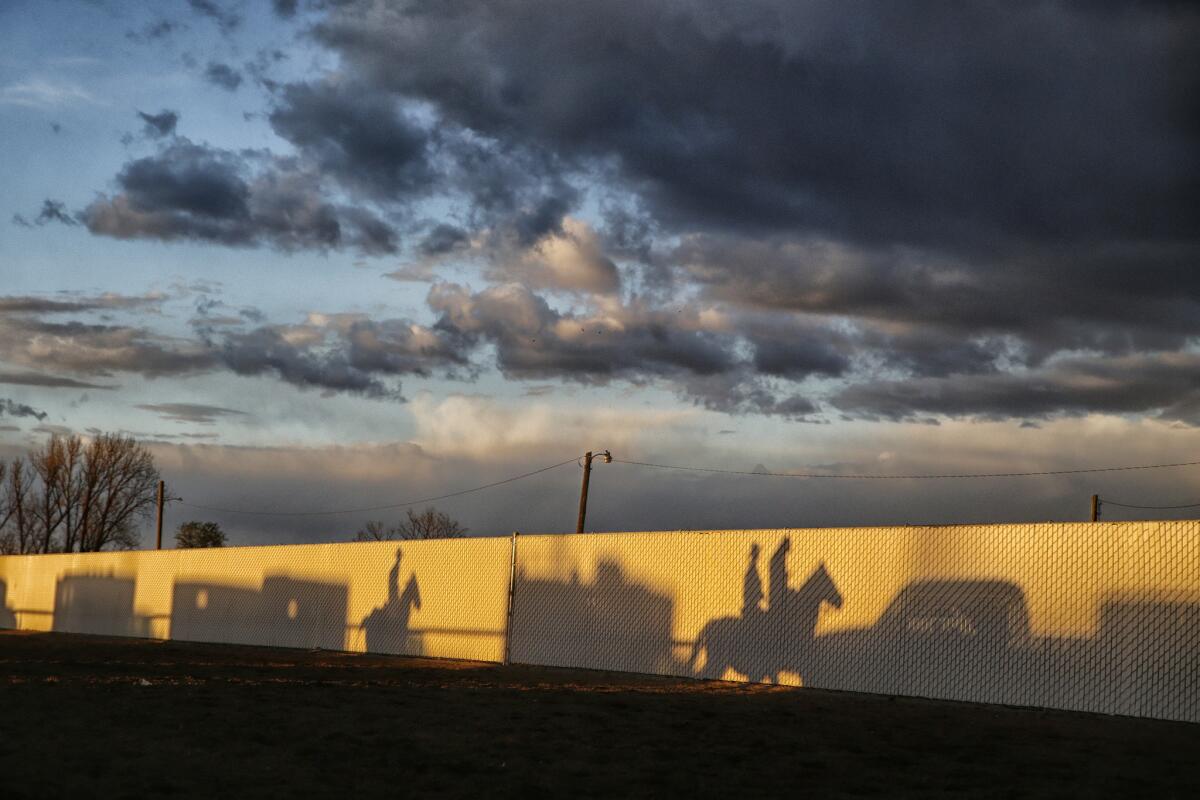
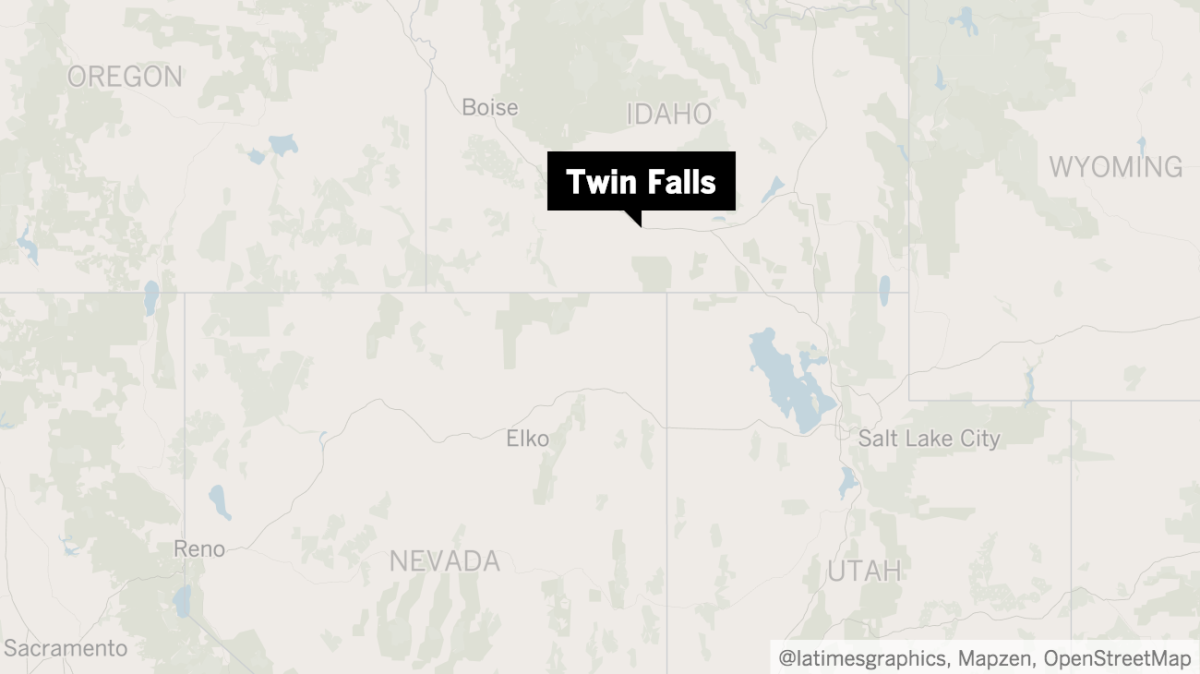
“Idaho typically reports about 10 cases of active TB each year to the Centers for Disease Control and Prevention, with one or two from the refugee community,” the agency said. “There are five cases being treated in the state today, but none are refugees.”
Zeze Rwasama, director of the refugee program at the College of Southern Idaho, says Twin Falls is a model for how to settle and integrate refugees into a community because it’s been doing it for so long and its size makes the transition easier for refugees and the community.
A refugee himself from the Democratic Republic of the Congo in 2001 after escaping the genocide in Rwanda, he says it’s a mistake to think refugees feel welcomed and ultimately thrive only in big cities in blue states. It works in places like Twin Falls, where the population is 89% white, and in a state that hasn’t voted for a Democrat for president in over half a century.
Twin Falls accepts 150 to 300 refugees a year.
“Integration is faster here,” Rwasama said. “They get a job, a place to live and then, perhaps most importantly, a car. Buying a car means they are fully independent.”
All that happens, he says, because there are plenty of jobs in Twin Falls and the cost of living is affordable. Twin Falls’ unemployment rate is 3% and the median house price is $149,000. Chobani, which is hiring and is one of the top five employers in the Magic Valley, has been starting people at $12 to $15 an hour.
Another major employer in the area is the dairy industry.
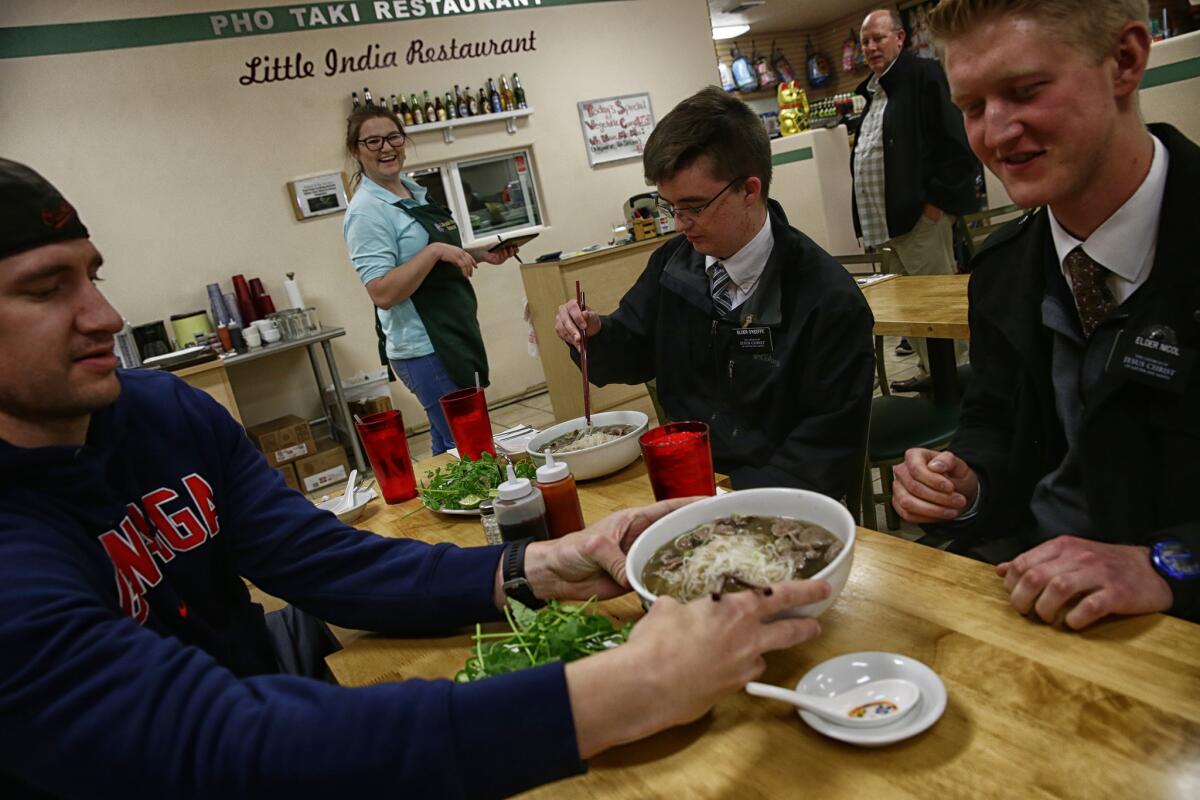
Idaho is among the top five dairy producers in the country, and Bob Naerebout, executive director of the Idaho Dairymen’s Assn., says there is no visa program for dairies to fill jobs with immigrant labor.
“The refugee labor pool is absolutely critical to the dairy industry,” Naerebout said. “Without them, it would be real trouble.”
He says average wages for refugees on a dairy farm start at $11 to $12 an hour. At one of the largest dairy farms in the area, 60 of the 220 workers are refugees.
Like others in Twin Falls, Naerebout is frustrated by the broad brush painted by Jones and others who never bothered to visit the area or talk to people who interact with refugees on a regular basis. He’s glad Chobani sued Jones to protect the company’s reputation and, by extension, the image of the area.
So is Fathe Noori, a 32-year-old refugee from Afghanistan.
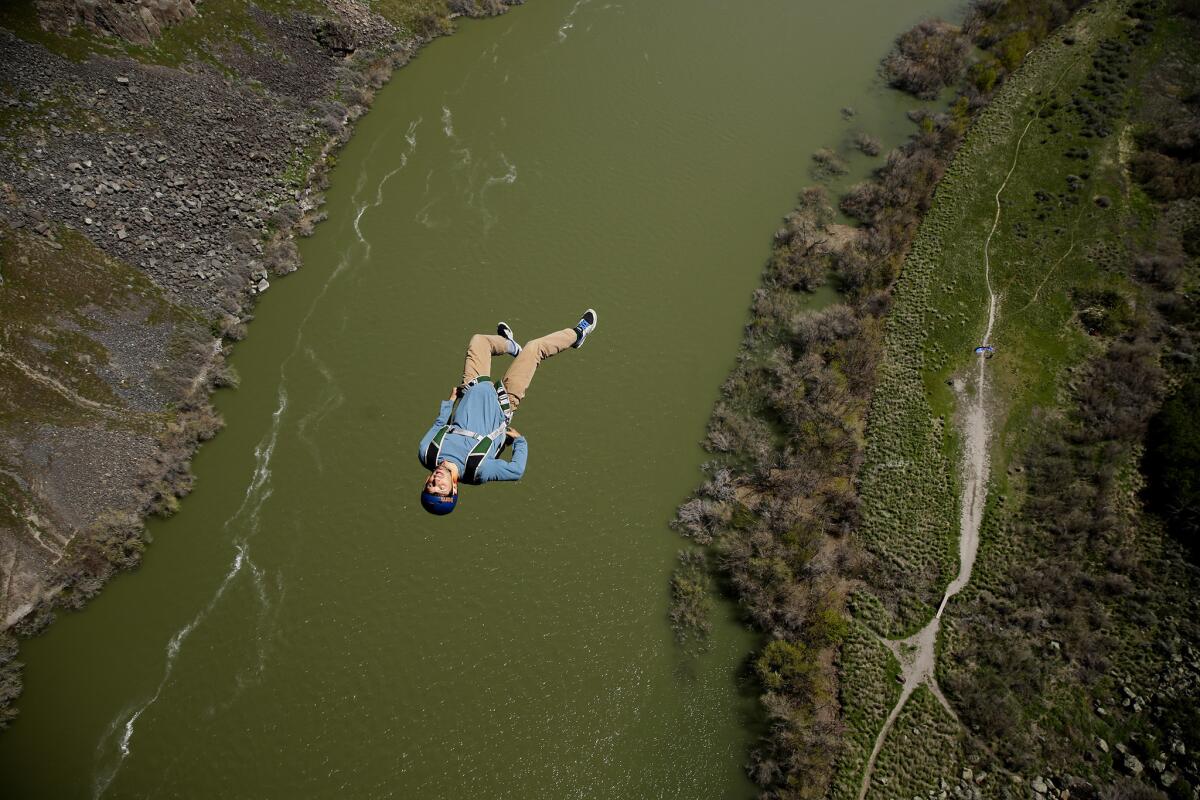
A former translator for the U.S. Army, Noori says there have been some bumps along the way integrating into Twin Falls — a lone teacher pushing Christianity on his children and graffiti defacing the local mosque. But he says most people are friendly and helpful.
When about five people staged a protest on the mosque property, he says, it was a Christian neighbor who called police to have them moved off the private grounds.
Noori says he’s adjusting to life in Twin Falls and likes the area and the people. His kids have grown to love watching and playing basketball — though soccer is still his favorite sport. He says they’ve been to rodeos and fairs.
They’ve watched people base-jump from the Perrine Bridge that spans the Snake River, their colorful chutes circling and drifting down to the water’s edge to land. Finding a few things to enjoy within the Twin Falls culture — especially sports — has made it easier to adapt to their new life.
Twin Falls never considered the attempted anti-refugee ballot measure, but its government did take action on refugees this year. The council passed an ordinance called “Idahome for All,” and postcards were handed out and placed around town that read, “I am a resident of Twin Falls, Idaho. I support refugees in our community. I urge you to do the same.”
FOR THE RECORD
8:46 a.m.: A previous version of this article stated that Twin Falls is located along Interstate 40. It is on Interstate 84.
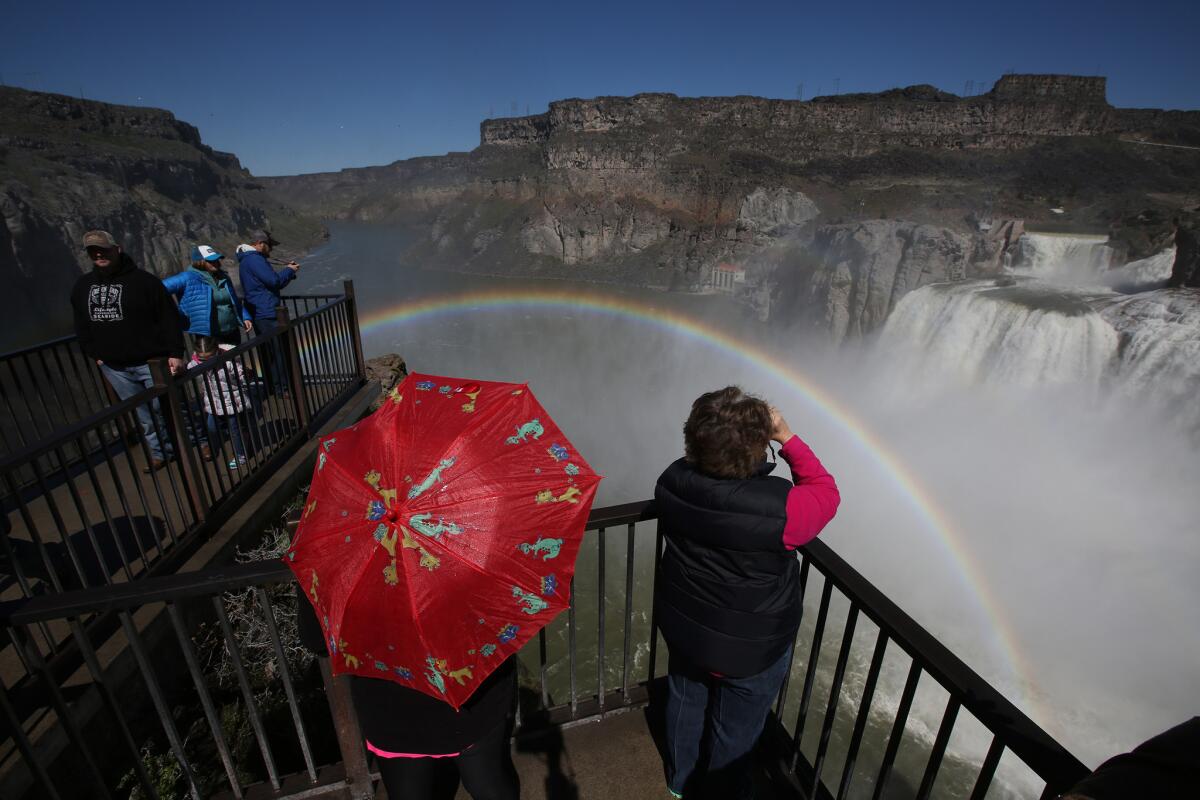
Twitter: @rgaut999
Twitter: @davemontero
Sign up for Essential California
The most important California stories and recommendations in your inbox every morning.
You may occasionally receive promotional content from the Los Angeles Times.








